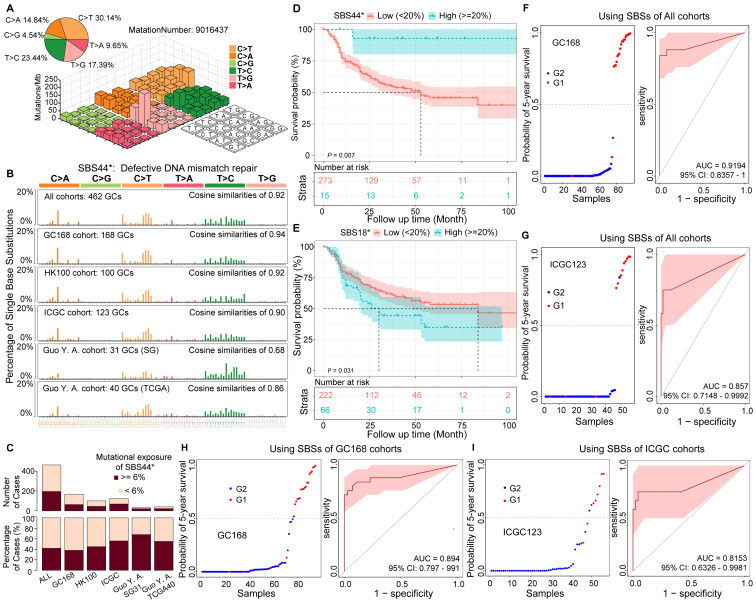
AI-driven analysis establishes the single base substitution signatures as personalized prognostic predictors for five-year survival of gastric cancer


AI-driven genetic engineering, as a burgeoning diagnostic tool, can offer predictive information on the five-year survival rate (FYSR) in the setup of a prognostic therapeutic schedule. This approach provides the individuality and accuracy of prognosis for FYSR of gastric cancer (GC). Unlike traditional neoplasm staging criteria, our technique ensures accuracy and individuality without relying on statistical data and empirical study. Here, we designed a gene mutation analysis algorithm (cumulative contribution abundance, CCA, Supplementary Material 1.1) to drive a single base substitution (SBS) signature to score GC prognosis because the algorithm can better represent the relationship between genes and mutational signatures. We found a new prognostic survival factor (SBS44) of GC and verified that SBS18 can also be utilized in this capacity. Then, a GC FYSR predictive AI model was constructed that combined the SBS44 and SBS18 (SBS44&18) signatures as characteristic variables and obtained high accuracy (AUC: 0.9194, 95% CI: 0.8357–1). Our results suggest that this technique is beneficial for accurate prognostic assessment and provide a new idea for clinical stratified treatment.
